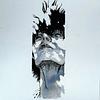You need to sign in or sign up before continuing.
Take a photo of a barcode or cover
challenging
dark
funny
mysterious
sad
medium-paced
Plot or Character Driven:
A mix
Strong character development:
No
Loveable characters:
Complicated
Diverse cast of characters:
No
Flaws of characters a main focus:
Complicated
An old woman at the thrift store spoke so highly of this book. She had read it in her 20s and it was her favourite Dostoevsky.
I feel so sad for Goljádkin, he was so happy to have found a friend before it all fell apart
I feel so sad for Goljádkin, he was so happy to have found a friend before it all fell apart
It would seem that the more someone looks like us, the more the empathy we feel for them. Compassion we feel is actually we atributing our own sensitiveness and feelings to other person. I guess suddenly find a double would scare you because you do not only attribute see feelings to them but also the knowledge your emtire personality - what you see is no longer a superficial physical resemblance but someone who has known deepest and darkest corners of your own consciousness, the best kept secrets. Well that at least is the theory I would like to believe in most from among other theories that try to explain the myth of doubles.
Anderson wrote a story in which the shadow of a person took over his identity and life. Dostovesky's novella has similar but more complex outline with a lot of, well, obviously, it is Dostovesky, psychological detailing. The psychological stress the protagonist was feeling at point when he first saw his double (unrequited love, social anxiety, humilation, self-pity, loneliness, hypocrisy even in his thoughts.... they all added in) is what makes it interesting, adding the whole unreliable narrator bit - for though novella is not in first person, our world view seems to stay limited to his perspective.
I wonder what Jung with his ideas about archetypes and shadows would have to say on this novella.
Anderson wrote a story in which the shadow of a person took over his identity and life. Dostovesky's novella has similar but more complex outline with a lot of, well, obviously, it is Dostovesky, psychological detailing. The psychological stress the protagonist was feeling at point when he first saw his double (unrequited love, social anxiety, humilation, self-pity, loneliness, hypocrisy even in his thoughts.... they all added in) is what makes it interesting, adding the whole unreliable narrator bit - for though novella is not in first person, our world view seems to stay limited to his perspective.
I wonder what Jung with his ideas about archetypes and shadows would have to say on this novella.
challenging
dark
emotional
reflective
sad
medium-paced
Plot or Character Driven:
Character
Strong character development:
Complicated
Loveable characters:
Yes
Diverse cast of characters:
No
Flaws of characters a main focus:
Yes
dark
reflective
sad
slow-paced
Plot or Character Driven:
Character
Strong character development:
Complicated
Loveable characters:
Yes
Diverse cast of characters:
No
Flaws of characters a main focus:
Yes
challenging
dark
mysterious
tense
medium-paced
Plot or Character Driven:
Character
Strong character development:
Complicated
Loveable characters:
No
Diverse cast of characters:
No
Flaws of characters a main focus:
Yes
emotional
funny
slow-paced
challenging
dark
emotional
funny
mysterious
reflective
sad
tense
slow-paced
Plot or Character Driven:
A mix
Strong character development:
No
Loveable characters:
No
Diverse cast of characters:
No
Flaws of characters a main focus:
Yes
challenging
dark
sad
tense
medium-paced
Plot or Character Driven:
Character
Strong character development:
No
Loveable characters:
No
Diverse cast of characters:
No
Flaws of characters a main focus:
Yes
challenging
dark
mysterious
tense
fast-paced
Plot or Character Driven:
Character
Strong character development:
No
Loveable characters:
Complicated
Diverse cast of characters:
No
Flaws of characters a main focus:
Yes





